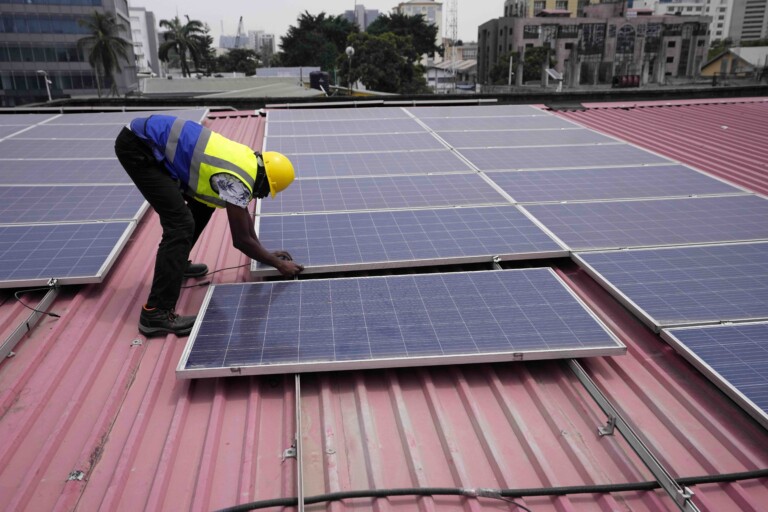Nigeria recently proposed a ban on importing solar panels to boost local manufacturing, but some climate and renewable energy experts worry this move may impede the country’s transition to cleaner energy sources. In announcing the proposed ban on March 26, Nigeria’s Minister of Science and Technology Uche Nnaji said the country has sufficient capacity to meet local solar energy demands through private firms as well as the National Agency for Science and Engineering Infrastructure, a Nigerian agency that’s been developing solar technologies. However, Ogunlade Olamide Martins, an associate director at Corporate Accountability and Public Participation for Africa, a Pan-African NGO, told Mongabay in a voice message that Nigeria’s solar panel production capacity currently remains limited. Martins said that Nigeria’s largest existing solar panel assembly factory, located in Lagos, has a 100-megawatt (MW) capacity, producing fewer than 72,000 panels annually. This is inadequate for the more than 83 million Nigerians lacking energy access, he added. “We can’t put pressure on local facilities that do not have the capacity.” By the end of 2024, Nigeria’s total installed solar energy capacity was about 385.7 MWp; the country aims to achieve 500 MW capacity by 2025. Solar panel manufacturing factories with higher capacity are under construction. Felicia Dairo, project manager at the Centre for Journalism Innovation and Development, told Mongabay in a written statement that the immediate consequence of the proposed ban will be scarcity in solar panels. “And we all know what happens when supply drops: Prices shoot up. The average household or…This article was originally published on Mongabay
Search
Recent Research
Want your Blog Article featured on our website?
Research
Featured News
Explaining Katsina’s Massive Leap to 2nd Position in the 2025 Climate Governance Ranking
In 2024, during the first edition of the Subnational Climate Governance Performance Rating and Ranking,
COP30: Firm to connect institutions with international climate finance opportunities
SISTME, a climate change and biodiversity conservation consulting firm based in Argentina, has offered to
From resistance to planetary governance, Indigenous women redefine global climate action
While world leaders negotiate behind closed doors in the Blue Zone of COP30, Indigenous Women
Sahara Group Foundation launches 16th Sahara Go Recycling Hub to boost environmental sustainability, economic empowerment
Sahara Group Foundation, the corporate social impact arm of Sahara Group, has commissioned its 16th
Climate finance is the lifeblood of climate action – Simon Stiell at COP30
Remarks delivered by UN Climate Change Executive Secretary, Simon Stiell, at the third High-Level Ministerial
UNDP, REA, GEF commission Plateau solar mini-grid to power agricultural value chains, empower rural communities
The United Nations Development Programme (UNDP), in partnership with the Rural Electrification Agency (REA) and
COP30: Africa urges world leaders to turn pledges into action
Africa has called on the world leaders to turn their pledges into action regarding the
Thousands join global marches calling on govts at COP30 to deliver climate justice
An estimated 30,000 people marched through the Brazilian city of Belém on Saturday, November 15,


